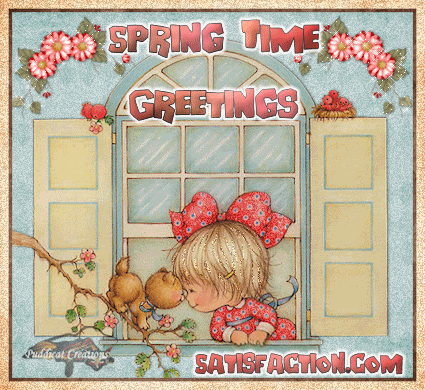 Want a book that will really make you think about why we celebrate Christmas? Author Jim Chapman has tried to help us truly re-focus on the real meaning of Christmas in his book The Night After Christmas. Chapman helps us to see how commercialized the season has become in his book. This is a cute book that brings home the way the world has really de-emphasized what truly Christmas is all about with a play on words Chapman brings it all down to too much emphasis on the wrong thing. It will make you stop and think where you put your priorities. The Night After Christmas is Chapman's counterbalance of the Night Before Christmas. I found this book to be very delightful and charming. You may check out Jim Chapman web site here.
Want a book that will really make you think about why we celebrate Christmas? Author Jim Chapman has tried to help us truly re-focus on the real meaning of Christmas in his book The Night After Christmas. Chapman helps us to see how commercialized the season has become in his book. This is a cute book that brings home the way the world has really de-emphasized what truly Christmas is all about with a play on words Chapman brings it all down to too much emphasis on the wrong thing. It will make you stop and think where you put your priorities. The Night After Christmas is Chapman's counterbalance of the Night Before Christmas. I found this book to be very delightful and charming. You may check out Jim Chapman web site here.
- What is the primary audience for your book?
The primary audience is anyone who has been stressed by the American cultural trappings of Christmas -- especially the frenzied and obligatory shopping/gift-giving ritual. It's also for those who might feel there's something more (or should be something more) to the holiday than parties, concerts, dinners, shopping and exchanging gifts. In that sense, the age range could be anywhere from 18 to 80, and it would go across gender, educational, or professional lines. My suspicion is that evangelical Christians would be most likely to gravitate to the book, but I would also like to reach those marginalized 'Christians' who haven't given Christ a prominent place in their lives.
- What are the main themes of your book?
*Christmas can be much more meaningful if we personally receive the ultimate gift from God -- Christ in the human heart.
* We've gotten so involved in other activities at Christmas that Christ almost seems like an intrusion.
*While there is something beautiful about the giving and receiving of gifts, our Christmas gift exchanges can sometimes border on the obligatory. Our unspoken code of conduct almost forces us into doing this -- even though we might not like to shop, we might not be able to afford it, or we don't really know (or don't feel right in asking) what an appropriate gift might be for someone. We're not even sure who should be on our gift list! So we buy a gift out of obligation or societal pressure, only to have the recipient of the gift take it back or exchange it for something else. That seems to further degrade the sanctity of the holiday.
*Christmas should be a celebration of the biggest event in the history of the world --God's coming to earth in human flesh as the Christ child. Instead, we have allowed our shopping, our gift exchanges, and all our other holiday activities to crowd Him out of the picture.
- How did this story begin to take shape and what motivated you to publish it?
It started out as a poem; 12 years later it finally became a book. I had long felt that Christmas was too secular -- that the mindless, empty, almost perfunctory ritual of shopping and exchanging gifts was taking away from the sacredness of the holiday. Then I read something the late Jim Elliot had written, and it sounded like I had some of the same feelings about Christmas that he did. He thought we'd all have a better attitude toward the whole thing if someone were to write a realistic poem on the Night After Christmas to counter the magical effects of the famous Night Before. After much encouragement to publish from audiences who had heard me recite the poem, I finally decided to take that step. The time in my life seemed right to do that very thing.
- What makes your book different from other books written on this subject?
For one thing, it's a poem. And it invites comparison [actually a contrast] to the famous Night Before rhyme. It's light-hearted—even amusing—at times, but it also has a serious message. It reads easily and smoothly, and the story line is enhanced by illustrations on every page. The Night After Christmas isn’t intrinsically negative—nor is it meant to bash anything – but it does poke a little fun at the folly of our shopping and gift-exchange routines. I wanted it to highlight the fact that we've let other things crowd out the real essence of the holiday.
- Are you just trying to make a philosophical statement about the holidays or is there an actual story?
It's a story. It does make a statement, yes, but it does it in the form of a gripping story.
After another harried, frenetic Christmas, an exhausted man is about to retire for the night when he discovers an unexpected guest in his garage, who makes him re-evaluate his take on Christmas. It wasn't written for children particularly, but the message is equally for them as well as for adults. Since the book’s release I have been pleasantly surprised to hear of children as young as 8 years old being interested (even captivated) by the story, once it's been read with - and explained - by an adult (most likely a parent or grandparent).
- What is the overall message?
Christmas was named after [Jesus] Christ, and he is foundational to the whole thing. Unfortunately, we have let the busyness and festivities of the holiday push him off center stage. He's an intrusion to our holiday. It's almost as if he doesn't matter anymore. Although the traditional names for the Christian deity are notably absent in the book, the references to them are unmistakably there. For those who might otherwise tend to push back a little because a given name carries a negative religious connotation, the absence of such terminology might help certain readers interact with the characters and be more open to the message.
- How does the main character of the story move to acceptance and faith?
The light came on. He already knew the theology, but it hadn't registered with him until his encounter with the unexpected guest in his garage. He GOT IT then.
- So what’s the best way to celebrate Christmas, and any other holiday as a Christian?
Enjoy all the good things about the holiday season - but give Christ his rightful place.
- What do you hope will happen for readers after they finish your book?
Simply put, I'd like people to have a more meaningful Christmas. I'd like people to detach from all the shopping and busyness and to realize that they may have pushed Christ out of their Christmas experience, either intentionally or inadvertently. Rather than for people to think of Jesus as an intrusion on the holidays, I'd like to see them embrace him as the One for whom Christmas was named and who can make the whole thing a lot more satisfying.
- How has writing this book changed your life and your Christmas traditions?
Writing this book has helped me re-evaluate my own observation of Christmas. Rather than stressing over how much to spend – and what to buy for whom – I am putting more emphasis on getting together with people and taking in more sacred concerts and Christmas pageants. That seems to be a more appropriate way to honor Jesus Christ and celebrate his birthday. In another vein, my family has taken to reducing its gift exchanges (for each other) and going on a trip around the holidays, where we can spend relaxed time with each other away from home. We’re also re-directing some of what would have been Christmas spending to additional charitable giving throughout the year.
Learn more about this book here.
A copy of this book was provided for review by WinePress Publishing















































No comments:
Post a Comment